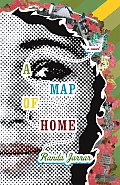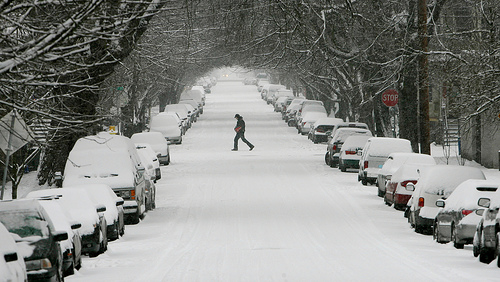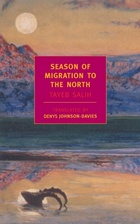News
 I was so overloaded with work last fall that I didn’t have time at all for any pleasure reading, which is why I came so late to my friend Randa Jarrar‘s debut novel, A Map of Home. This is a traditional bildungsroman, but one in which the hero is actually a Greek-Palestinian-Egyptian heroine named Nidali, who grows up in Kuwait and Texas, who puts in a strong argument for why the Egyptian crooner Abdel Halim must have been gay, and whose attempts at college entrance essays include one titled “I Come From Crazy Stubborn, Mad Lovin’ Hoes.” I read the book in one sitting. Jarrar writes with honesty and humor about what it’s like to be a Palestinian girl in Kuwait, or an Arab in Texas. Here’s a small excerpt from the middle of the book, when Nidali’s father decides he will write his memoir:
I was so overloaded with work last fall that I didn’t have time at all for any pleasure reading, which is why I came so late to my friend Randa Jarrar‘s debut novel, A Map of Home. This is a traditional bildungsroman, but one in which the hero is actually a Greek-Palestinian-Egyptian heroine named Nidali, who grows up in Kuwait and Texas, who puts in a strong argument for why the Egyptian crooner Abdel Halim must have been gay, and whose attempts at college entrance essays include one titled “I Come From Crazy Stubborn, Mad Lovin’ Hoes.” I read the book in one sitting. Jarrar writes with honesty and humor about what it’s like to be a Palestinian girl in Kuwait, or an Arab in Texas. Here’s a small excerpt from the middle of the book, when Nidali’s father decides he will write his memoir:
Your father was the #1 student in all of Jenin!” Baba said proudly one afternoon after supper. “I blew fear into the other boys’ hearts. No one surpassed me. I rode the donkey down to school every morning and sat in the classroom–which was freezing in wintertime since some of the windows were broken–and I always had my hand up: I could answer any question. Without fail, my name appeared first on that list every year.”
I wanted Baba to tell me more about this donkey, about growing up in Palestine on the small hill in the small house, spreading mats for beds on the floor of the one-room house. “I’d rather hear your stories than study any book,” I said, and, unfortunately for me, he took this announcement literally.
“Then bring me a piece of paper!” he commanded. “And bring me a pen!” he said, so I did, and then he said, “Sit! Now write: Ever…wait.” He stared off into the window, or at the branches in the fake forest we painted on the wall. “Evergreen,” he said, “write it,” so I did. Then he said, “Now write, A Memoir, Waheed Ammar,” so I wrote, A Memoir, Waheed Ammar. Then he stared off again and anxiously bit the inside of his cheeks, his mouth twisted to the side and his lips pouting.
“There…No! Don’t write that. Wait! The hills in 1901…No! Did you write that? Don’t write it. Wait till I say full stop. Wait! Fuck, you’re ruining my inspiration. Kids! You can’t be an artist and have kids! Now sit, don’t stand there leaning that paper against the couch, didn’t you hear? I said a memoir. So sit.”
You can find out more about the book here.
I’m thrilled to hear that the Moroccan novelist, essayist, and critic Abdelfettah Kilito has a new book out in the United States, Thou Shalt Not Speak My Language, which is billed as a meditation on the role of language, translation, and bilingualism in Arabic literature. The book is translated into English by the talented Wail Hassan (the author of an excellent critical evaluation of Tayeb Salih’s fiction.)
(Via the Literary Saloon.)

Between my teaching at UCR, my semester commitment at Warren Wilson, my new novel, and two essays that were due this past month, I simply haven’t had a moment to update my blog. And now that I do have time, I’m actually in Portland, Oregon. I’m visiting my sister, watching the blizzard of ’08, and looking forward to being unplugged for a few days. But I’ll be back here on Monday, January 5th. See you then.
Photo credit: The Oregonian via Flickr.
 I’ve been asked to write an introduction to Tayeb Salih’s seminal novel, Season of Migration to the North, for a new edition that will be coming out in the New York Review of Books Classics series. If you’re a regular reader of this blog, then you’re probably aware that Salih’s book is one of my favorite Arabic novels. So it was a delight to be asked and a treat to do this piece.
I’ve been asked to write an introduction to Tayeb Salih’s seminal novel, Season of Migration to the North, for a new edition that will be coming out in the New York Review of Books Classics series. If you’re a regular reader of this blog, then you’re probably aware that Salih’s book is one of my favorite Arabic novels. So it was a delight to be asked and a treat to do this piece.
For those of you who are unfamiliar with this book, here’s a little blurb about it:
After many years of study in Europe, the young narrator of Season of Migration to the North returns to his village along the Nile in the Sudan, eager to make a contribution to the new postcolonial life of his country. Back home, he discovers a stranger among the familiar faces of childhood—the enigmatic Mustafa Sa’eed. Mustafa takes the young man into his confidence, telling him the story of his own years in London in the early part of the twentieth century, of his brilliant career as an economist, and of the series of fraught and deadly relationships with European women that led to a terrible public reckoning and his return to his native land.
But what is the meaning of Mustafa’s shocking confession? Mustafa disappears without explanation, leaving the young man —whom he has asked to look after his wife—in an unsettled and violent no-man’s-land between Europe and Africa, tradition and innovation, holiness and defilement, and man and woman, from which no one will escape unaltered or unharmed.
In a happy coincidence, this book will be coming out on April 14, a week before my novel, Secret Son, is released.
What a thrill it was to find that the New York Times Book Review’s Notable Books of 2008 includes the collection of poems Half of the World in Light by my friend and UCR colleague Juan Felipe Herrera! Felicidades, JFH!
 I was so overloaded with work last fall that I didn’t have time at all for any pleasure reading, which is why I came so late to my friend Randa Jarrar‘s debut novel, A Map of Home. This is a traditional bildungsroman, but one in which the hero is actually a Greek-Palestinian-Egyptian heroine named Nidali, who grows up in Kuwait and Texas, who puts in a strong argument for why the Egyptian crooner Abdel Halim must have been gay, and whose attempts at college entrance essays include one titled “I Come From Crazy Stubborn, Mad Lovin’ Hoes.” I read the book in one sitting. Jarrar writes with honesty and humor about what it’s like to be a Palestinian girl in Kuwait, or an Arab in Texas. Here’s a small excerpt from the middle of the book, when Nidali’s father decides he will write his memoir:
I was so overloaded with work last fall that I didn’t have time at all for any pleasure reading, which is why I came so late to my friend Randa Jarrar‘s debut novel, A Map of Home. This is a traditional bildungsroman, but one in which the hero is actually a Greek-Palestinian-Egyptian heroine named Nidali, who grows up in Kuwait and Texas, who puts in a strong argument for why the Egyptian crooner Abdel Halim must have been gay, and whose attempts at college entrance essays include one titled “I Come From Crazy Stubborn, Mad Lovin’ Hoes.” I read the book in one sitting. Jarrar writes with honesty and humor about what it’s like to be a Palestinian girl in Kuwait, or an Arab in Texas. Here’s a small excerpt from the middle of the book, when Nidali’s father decides he will write his memoir:
